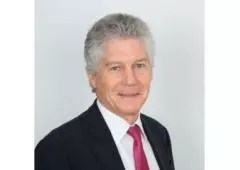For more Information:
https://nycdepartmentoffinance.powerappsportals.us/forums/general-discussion/1e1362b9-77fc-ee11-a73d-001dd8305ba3
Narendra Modi, the 14th Prime Minister of India, has emerged as one of the most influential and polarizing figures in Indian politics. His journey from a humble background to the country's top leadership position is marked by a mix of controversies, successes, and a vision for transforming India into a global powerhouse. Let's delve into the biographic details of this enigmatic leader.
Early Life and Education
Narendra Damodardas Modi was born on September 17, 1950, in Vadnagar, a small town in the state of Gujarat, India. He was the third of six children born to Damodardas Modi and Heeraben Modi. Modi's childhood was marked by financial struggles, and he helped his father sell tea at the Vadnagar railway station during his early years.
Despite facing economic hardships, Modi was a diligent student with a keen interest in politics and debating. He completed his schooling in Vadnagar and went on to earn a Bachelor's degree in Political Science from the University of Delhi. However, his academic pursuits were overshadowed by his passion for public service and his desire to bring about social change.
Early Political Career
Modi's foray into politics began in the early 1970s when he joined the Rashtriya Swayamsevak Sangh (RSS), a Hindu nationalist organization, known for its conservative ideology. He quickly rose through the ranks of the organization and became actively involved in various social and political initiatives.
In 1987, Modi joined the Bharatiya Janata Party (BJP), the political arm of the RSS, and began his political career in earnest. His organizational skills and charismatic leadership soon caught the attention of senior party members, and he was appointed as the General Secretary of the Gujarat BJP in 1988.
Chief Minister of Gujarat
Modi's big breakthrough came in 2001 when he was appointed as the Chief Minister of Gujarat, following the resignation of the incumbent Chief Minister. His tenure as Chief Minister was marked by both praise and controversy. On one hand, he was credited with fostering economic growth, infrastructure development, and attracting investment to Gujarat. However, his administration also faced criticism for its handling of the 2002 Gujarat riots, which resulted in widespread violence and loss of life, particularly among the Muslim community.
Rise to National Prominence
Despite the controversies surrounding him, Modi's popularity continued to grow, both within the BJP and among the Indian electorate. In 2014, he led the BJP to a landslide victory in the general elections, securing a majority of seats in the Lok Sabha, the lower house of India's Parliament. Modi's campaign focused on promises of economic development, good governance, and rooting out corruption, resonating with millions of voters across the country.
Prime Ministerial Tenure
As Prime Minister, Modi has pursued an ambitious agenda of economic reform, infrastructure development, and promoting India's interests on the global stage. His government has launched initiatives such as Make in India, Digital India, and Swachh Bharat Abhiyan, aimed at spurring economic growth, expanding digital infrastructure, and improving sanitation and hygiene across the country.
Modi's foreign policy initiatives have also garnered attention, with efforts to strengthen ties with major powers such as the United States, Russia, and Japan, while also reaching out to neighboring countries in South Asia. His assertive stance on issues such as national security and terrorism has drawn both praise and criticism from various quarters.
Conclusion
Narendra Modi's journey from a tea-seller's son to the Prime Minister of India is a testament to his resilience, determination, and political acumen. Despite facing numerous challenges and controversies along the way, Modi has remained a dominant force in Indian politics, shaping the country's trajectory in significant ways. Whether admired or criticized, there is no denying the indelible mark that Narendra Modi has left on the landscape of Indian politics and society.














